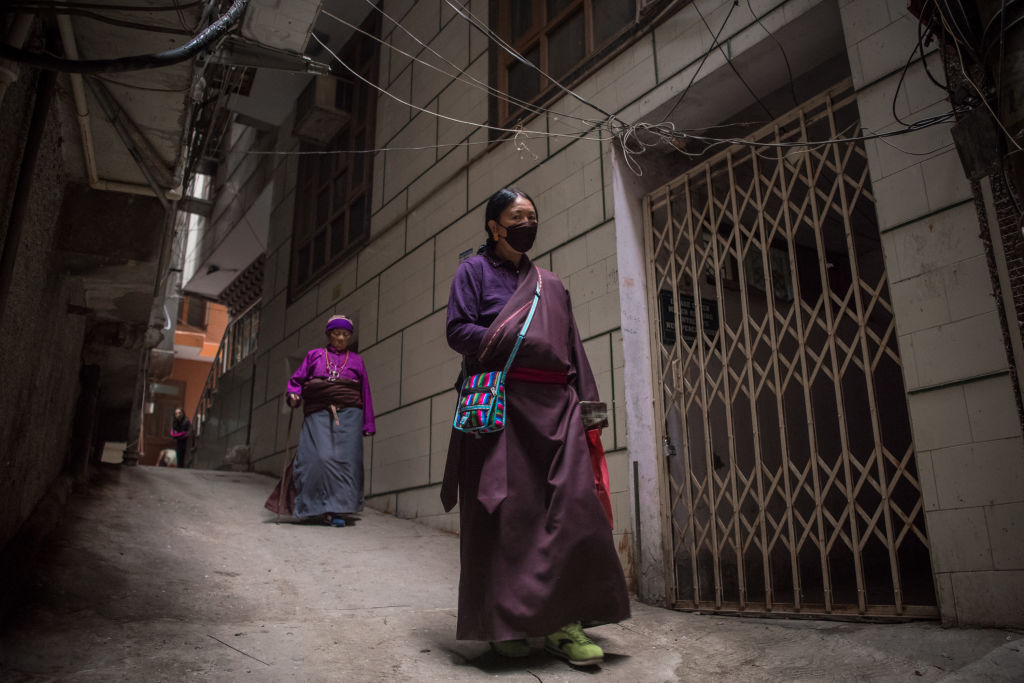Restrictions in Delhi may have eased, but for migrants from the Northeast states lack of jobs and security are driving factors for not returning to the city
Like many high hopes for the future, 25-year-old Premjit Lhaho from Sikkim to Delhi. In 2013, He rented a flat in Kamala Nagar with four other friends, later shifting to Munirka in 2018 to prepare for state civil service exams. To supplement his income he started working at a local pizza delivery store with hopes that it would support his studies. Now, however, he has had to move back to his home state as he was left with no work.
“It became tough for me to survive in Delhi,” says Lhaho. “I used to pay 6,000 rent, which my landlord wanted me to continue paying, without a job though it was impossible.” Lhaho’s decision to shift back is also driven by his loneliness, and fear of violence in the city.
“I was reading about cases of racial attack against our community, and my family was also worried about me so I decided to come back home and prepare for the exam from here” he said.
This is not his story, upon talking to others from the north-east, the Patriot found that countess faced a similar situation. Most of them state that racial slurs and often violence against them, as is often thought to be, is not the main reason why people from the North-eastern states are leaving Delhi.
The main reason is the lack of jobs that led people to go back home.
Hinoto P Aomi, Naga Student Union Delhi president, says, “Racial slurs and abuses are normal, we face it even in normal times. So, this is not what drove the migrants from the city. The main reason was that there were no jobs so there wasn’t anything that could hold them back.” Aomi adds that during the second wave a majority of the migrant workers went back home, “Only the people who had stable jobs or some savings to survive stayed.”
However, even when things started to normalise and unlocks were being announced, though workers from other states started returning, the majority of migrant workers from north-east did not come back.
“In the first wave we got a lot of calls from students and workers stuck here in Delhi because of unavailability of work, they were not able to pay rents, But during the second wave we did not receive any such complaints. Reason being, the majority of them were back in their hometowns.” says Phibir Chakma, general secretary of Chakma Student Union.
On the question of how many of his community members have returned to Delhi, he said, “There are a few, but the majority of them have not returned.”
In Majnu ka Tila, a settlement of 3,000 odd tibetan families and a home for a lot of North eastern Indians people are deserting home. Closed lanes packed with cafes and vendors have found some breathing space but the people are yet to return.“Some families are gone, but largely the tibetan community stayed here because we have been here for many years. However, people from other states, like from Manipur, Nagaland, Mizoram left for their home states and many did not come back.” says a women vendor in Majnu Ka Tila.
A similar story is unfolding in Munirka and Humayupur. Here there is a cultural mix with Jats largely being the landlords, and people from north eastern states renting accommodations.
Ramesh, a landlord in Munirka village says,“I have two buildings, in one building where I don’t visit I gave rooms on rent for whoever wishes to take it. All 27 rooms were occupied before the lockdown and 20 were north- easter, now only three rooms are occupied”.
Ramesh doesn’t like people from the Northeast for their food choice and their affinity for loud music, he adds that “the building in which I stay, I only allow decent people to rent houses.” “Northeasterns can eat anything”, he says with a chuckle.
During the first wave of the pandemic a lot of people from Northeastern states faced racial abuses, therefore the Special unit of Delhi Police from North eastern region (SPUNER) launched a WhatsApp number so that grievances from citizens can be heard.
“We had a WhatsApp number, and it was taken care of by SPUNER. They were very prompt about it.” said Nishant Nigam, a member of the legal aid team for citizens of North eastern states.
Advocate Ms Eliza Rumthao, also a member of the legal aid team said, “During the first wave we received a lot of complaints regarding abuses by landlords and job losses.”
“Racial abuses increased as people thought this is a chinese virus and we look like them. So we also received such complaints.”





